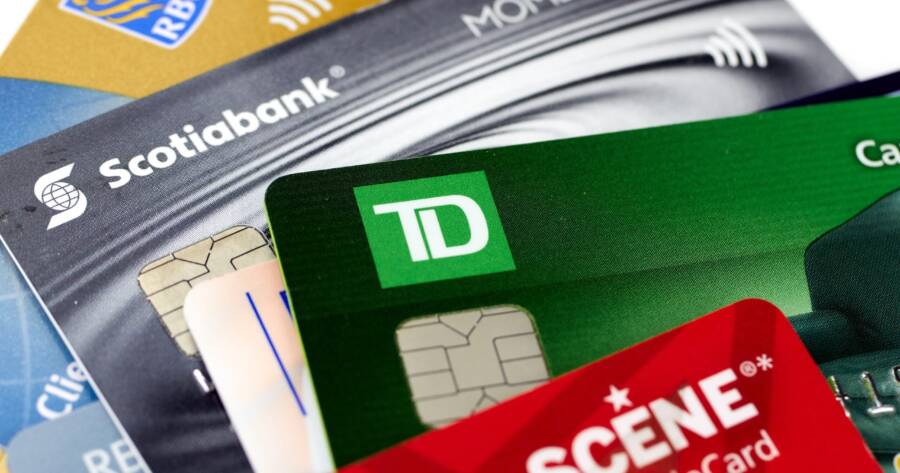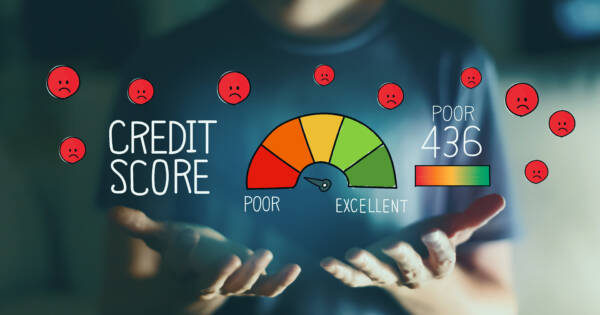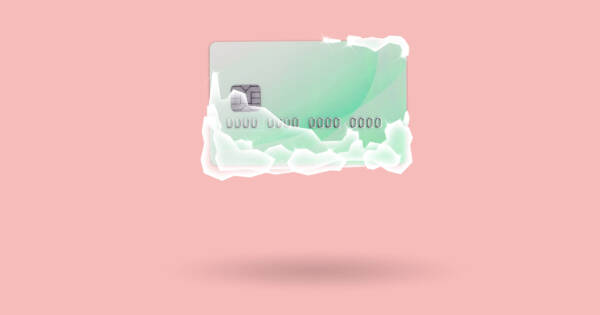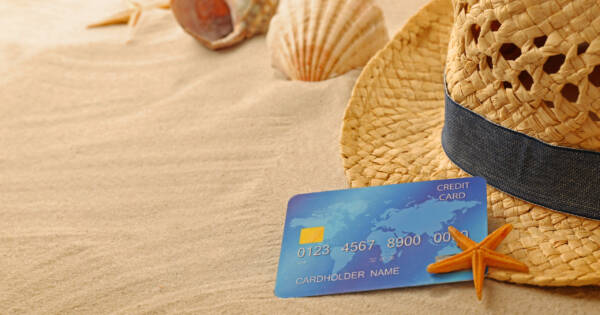Having bad credit is tough. It makes things that many people take for granted — like financing a new car or swiping your credit card at the gas pumps — extra difficult. Or downright impossible, in some cases. Unfortunately, we now live in a digital age where not having a credit card is a huge inconvenience. From online shopping to booking hotels or car rentals, a credit card is basically a necessity in these modern times. And that’s not even mentioning using a credit card for things like curbside grocery pickup or essential product deliveries in the middle of an ongoing pandemic.
If you can’t get a “normal” credit card, you might think you’re simply out of luck. However, even Canadians with bad or poor credit have a few lifelines for new credit cards. They come with higher interest rates and lower limits. You might even have to settle for a secured credit card at first. But you have to start rebuilding that credit somehow, and responsible credit card usage can play a big part in that. Check out these options.
Home Trust Secured Visa
Here’s a no-nonsense, no-frills secured card to get you started. It comes with a fairly standard 19.99% interest rate and no annual fee. It requires at least $500 as a security deposit. If you can commit to paying off any balance every month, the interest rate won’t matter and you won’t have the extra cost of an annual fee. However, there is a $12 inactivity charge if you don’t use the card at least once every 12 months. Just use it for something small and make sure you pay off the balance.
There’s a slightly different version of this card available too. For a $59 annual fee you can get the same secured card with an interest rate of 14.9%. However, if you already have poor credit and are trying to rebuild, it’s best not to carry a balance regardless of how much interest you’ll pay. The good news is these the Home Trust Secured Visa is approved for almost any applicant who can provide the security deposit.
Capital One Low Rate Gold Mastercard
Here’s an unsecured credit card option you can try for. The Capital One Low Rate Gold Mastercard is another basic card for anyone with lower credit scores. It comes with a $79 annual fee and a 14.9% interest rate, but also a few perks that might make the extra cost worth it.
For starters, you don’t need a security deposit to get this card. It also includes price protection (difference of up to $100 per item, to a maximum of $500/calendar year), common carrier travel accident insurance, and baggage and rental vehicle insurance. So it’s decent option for a budget traveler. Capital One also offers a secured Mastercard option, if you don’t qualify for this card.
No-Fee Scotiabank Value Visa
This Scotiabank Visa card is a step up from the other cards on our list so far. However, it comes with a few extra requirements. For starters, you have to have no history of bankruptcy in the past seven years. You also need an annual income of at least $12,000 a year (and be able to prove it via tax returns or paystubs). After that, you’ll get a card with a minimum $500 credit limit (you could be approved for more), a decent 16.99% interest rate, and no annual fee.
There is also sometimes an introductory offer of 3.99% on balance transfers. You might be able to use this card as a way to pay less interest on a different credit card balance you’ve been working on paying off.
Refresh Secured Visa
The Refresh Secured Visa is both the same and different than other cards on this list. While it’s interest rate (17.99%) and annual fee ($48.99) are merely average, you are guaranteed to be approved for it without a credit check. Of course, you’ll still have to provide the security deposit up front. Secondly, it includes access to Refresh’s Financial Intelligence Training — an online training program to help you improve your credit score and overall financial situation. You can also earn $100 for referring others to the card — a nice perk, if you can use it.
RBC Visa Classic Low Rate Option
This card typically requires slightly better credit. So you may not qualify if your credit is poor. However, if you’re hovering in the “fair” range, check out the RBC Visa Classic Low Rate. The annual fee is only $20 and the interest rate is only 12.99%.
On the downside is that you may not be offered that low rate if your credit score is low. The card is slightly less attractive if you have to pay 19.99% instead. This RBC Visa comes with a couple of nice perks, though. You’ll get purchase protection, zero fraud liability, and a discount of three cents per liter at Petro-Canada stations (plus a 20% bonus on Petro Points).
TD Emerald Visa
The TD Emerald Visa is another option for those with low credit scores. It comes with an annual fee of just $25 and a variable interest rate that can drop as low as 4.5% or up to 12.75%. You can also get additional cardholders (for a spouse or child) for no additional cost. The minimum credit limit is $1,000.
It also comes with Visa Zero Liability protection, Verified by Visa online shopping protection, and Instant Fraud Alerts. It’s compatible with Apple Pay and even features extra savings on Avis or Budget rental cars. The TD Emerald Card is also a good candidate for balance transfers or other debt consolidation. Especially if you can get a good introductory rate for the first year.
BMO Preferred Rate Mastercard
The BMO Preferred Rate Mastercard is another card for those with fair credit. You may not qualify if your credit score is too low or you have a bankruptcy in your history. If you do qualify, though, it’s a good card for those looking to build their credit.
The interest rate ranges between 11.9% and 17.5%, based on your credit history. There’s also a modest $20 annual fee and an attractive introductory offer for balance transfers. This card also comes with travel benefits, purchase protection, extended warranties, roadside assistance, medical protections, and trip cancellation coverage.
Secured vs. Unsecured
If you haven’t already assumed the difference between a secured and unsecured credit card, here’s a brief breakdown. A secured credit card requires you to give a cash deposit equal to the credit limit. It’s typically $500 or $1,000. While it might seem stupid to let a bank tie up your money, don’t forget the long term benefits. First of all, you’ll get that money back. After a time (usually a year), the credit card company will refund that money if you’ve been responsible with your card. Secondly, it’s one of the best ways to actually establish, build, or repair your credit.
An unsecured card is what you traditionally think of when people talk about credit cards. You don’t pay any money up front (other than maybe an annual fee). You get access to the entire credit limit, right away. After that, you are responsible for any purchases and interest charges. At a minimum, you’ll have to make the monthly minimum payment (although it’s a bad habit to get into, as it could take forever to pay off).
Using Your New Credit Card
Once you’ve managed to get approved for a new credit card, make sure you use it wisely. Here are some key pointers to build your credit.
- Always pay on time. Even if you can’t pay off the whole balance, make sure you send payments when they are due. Set up reminders in your phone or banking app if you need to.
- Actually use your card. It’s a common myth that your credit score increases if you don’t use your credit at all. Go ahead and use it — responsibly! Your credit history will start to show you as someone who can borrow money and still pay it back on time.
- Don’t max it out. Credit utilization is a big part of your credit score. As a rule of thumb, you should try to never use more than 30% of the your available balance. Any more than that and potential lenders will worry about you being overextended on your debts.
If you’re finding that living in a modern world is tough without a credit card, don’t despair. There are options for everyone, even those with bad or poor credit.
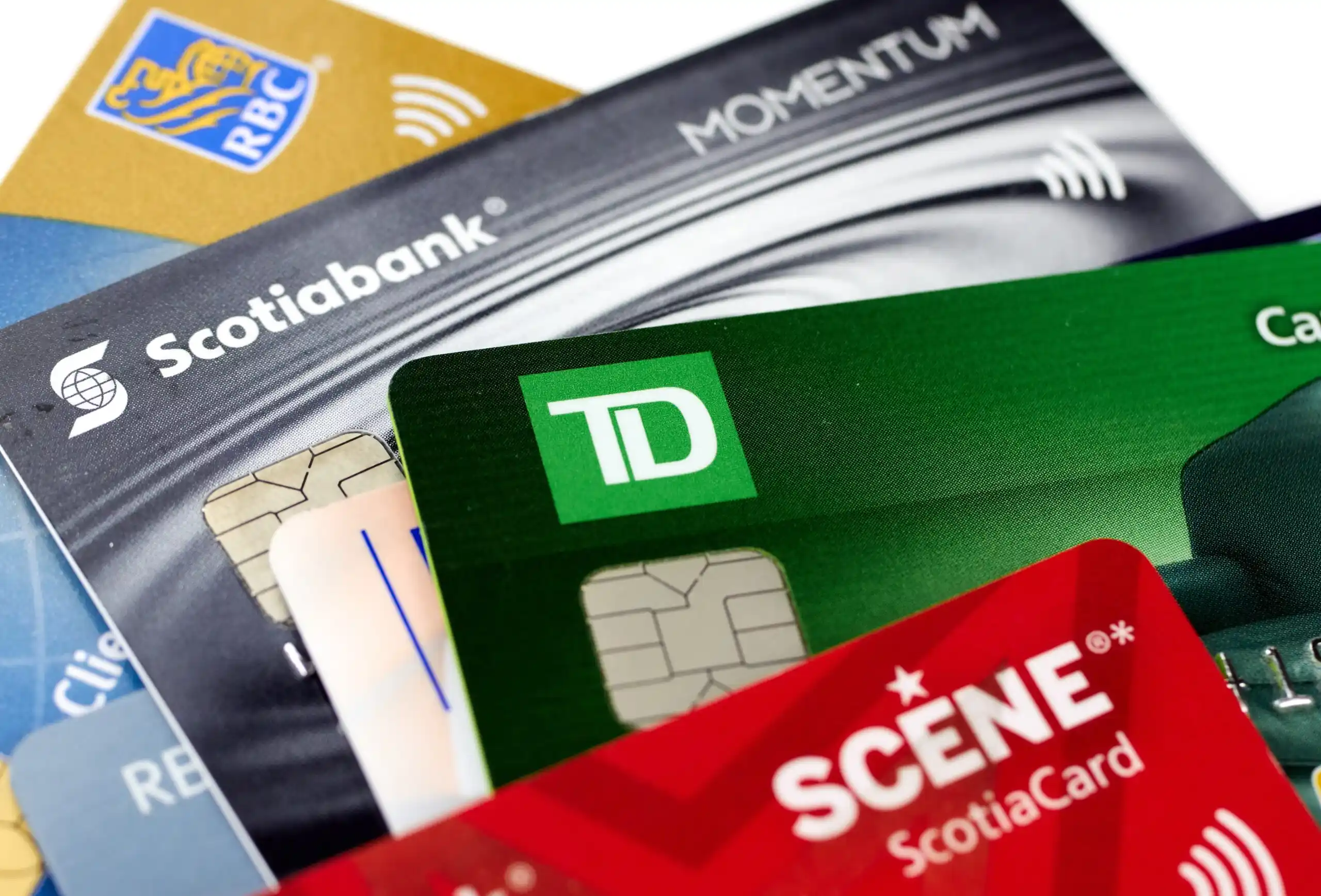 Shutterstock
Shutterstock